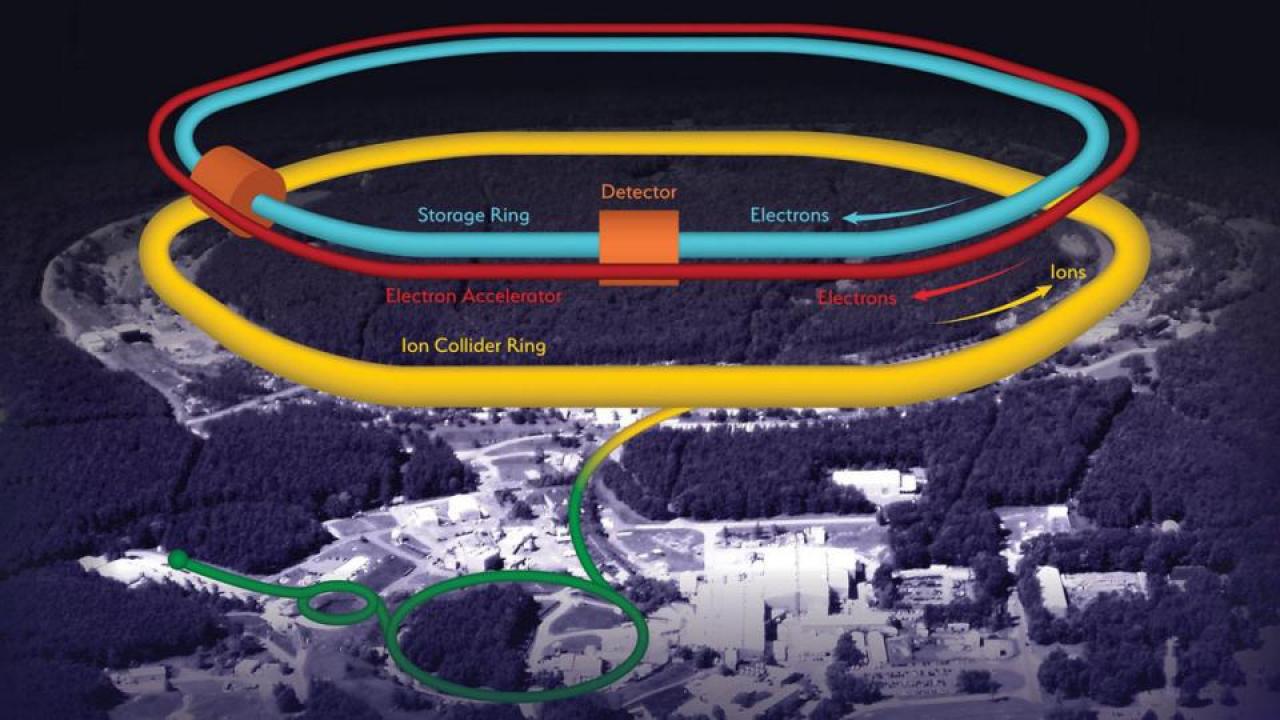
Researchers Share in Multicampus Grants in the Sciences and Humanities
The UC Office of the President recently awarded around $19 million total for Multicampus Research Programs and Initiatives (MRPI) in agriculture, the coronavirus, humanities and culture, state policy on social and economic issues, and the Electron-Ion Collider.
“The MRPI competition funds discoveries that improve the lives of Californians and draws world-class student, faculty and staff talent to the university,” UC President Michael V. Drake said. “UC programs like this help keep California at the forefront of breakthrough research and technological innovation.”
Here are the research projects involving UC Davis and the campus representatives in each:
California Consortium at the Electron-Ion Collider
This program will engage UC faculty with the Electron-Ion Collider, or EIC, recently approved for construction by the U.S. Department of Energy at a cost of $2 billion. The EIC is the only new particle collider planned for the United States in the next 20 years. It will use electrons to image the quarks and gluons inside nuclei with unprecedented precision. The new project will build on an existing EIC consortium of four UC campuses and three UC-managed laboratories. In collaboration with 1,000 scientists from 30 nations, the California Consortium will design and build the new instrument including developing the technology for new detectors. This is an extraordinary opportunity for UC students to design and construct large-scale detectors using state-of-the-art technologies, such as highly granular silicon pixel sensors and novel compact calorimeters. Students will analyze Petabyte-scale datasets with supercomputers at the Lawrence Berkeley and Lawrence Livermore national laboratories. The project also includes an outreach plan to spark the imagination of K-12 students across California with public lectures and exhibits. Leader: Barbara Jacak, professor, UC Berkeley. UC Davis representative: Daniel Cebra, professor, Department of Physics and Astronomy. ($1.8 million)
The Global Latinidades Project: Globalizing Latinx Studies for the Next Millennium
Latinx studies has made profound contributions to 20th- and 21st-century thought through its complex explications of culture and politics in borderlands and colonial contact zones. The field’s terrain, however, has remained grounded in a North American milieu, particularly the U.S.-Mexico borderlands, Caribbean locales and various Latin American diasporic flows to and within the United States. The Global Latinidades Project expands the scope of Latinx studies by refocusing the field’s attention onto a broader global terrain. The goal is to recover and assess new and complex models of Latinx life, culture, history and politics — or Latinidades — that are synthesized in contact with peoples and contexts throughout the world, particularly Africa and the Mediterranean, Asia and Pacific Islands, subaltern Europe and neglected areas of the Americas. Leader: Professor Ben Olguin, UC Santa Barbara. UC Davis representative: Ofelia Cuevas, assistant professor, Department of Chicana and Chicano Studies. ($1.8 million)
Living Through Upheaval: The University of California Humanities Initiative
“Living Through Upheaval” consists of three research platforms that sustain the strong international reputation of UC humanities: Future of the Humanities and the University, a 21st-century humanistic research agenda and evolving curricula for graduates and undergraduates to help respond effectively to widespread upheavals such as climate change, mass migrations, natural catastrophes and pandemics; Literacies and Leadership in a Diverse Society, addressing how the humanities support leadership and collaborative problem-solving in diverse, complex social environments and clarifying how humanistic learning can respond effectively to rapid change; and the Living Through Upheaval Competitive Grant Programs, renewing collaborative, interdisciplinary research programs that support faculty and graduate students and public communication of humanities research for citizens of California and elsewhere. Leader: Tyrus Miller, professor, UC Irvine. UC Davis representative: Mani Tripathi, professor of physics and associate dean of research and graduate studies, College of Letters and Science. ($1.5 million)
Centering Tribal Stories of Cultural Preservation in Difficult Times
Cultural heritage protection is of the utmost urgency for many UC students and their communities across California because their irreplaceable sites and natural environments face increasing impacts from development and climate change. UC researchers have led specific conversations around these issues in environmental science, biology, ethnography and archaeology, but the millennia of expertise within Indigenous Californian communities is often overlooked. Only through interdisciplinary conversations can we highlight the knowledge of California Native communities in order to effectively understand the full scope of potential impacts of climate change and development on cultural heritage. In this project, a team of UC professors who have been engaged in community-based research with Indigenous people throughout California will create a holistic teaching approach to train students on engaging with indigenous cultural heritage experts. Leader: Mishuana Goeman, associate professor, UCLA. UC Davis representative: Beth Rose Middleton, professor, Department of Native American Studies. ($900,000)
— Andy Fell, UC Davis News & Media Relations
